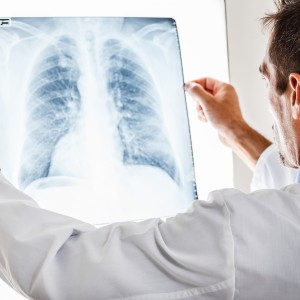Lung Donors’ Alcohol Habits Affect Recipient Recovery, Study Shows
Written by |

 A study published in the journal Alcoholism: Clinical and Experimental Research revealed that the heavy drinking habits of lung donors can influence the outcome of lung transplantation in recipient patients. The study is entitled “Heavy Alcohol Use in Lung Donors Increases the Risk for Primary Graft Dysfunction.”
A study published in the journal Alcoholism: Clinical and Experimental Research revealed that the heavy drinking habits of lung donors can influence the outcome of lung transplantation in recipient patients. The study is entitled “Heavy Alcohol Use in Lung Donors Increases the Risk for Primary Graft Dysfunction.”
Substantial alcohol consumption is recognized as a contributing factor for a higher risk of acute lung injury and acute respiratory distress syndrome. The reason underlying this phenomenon is linked to a higher generation of reactive oxygen species (ROS) that correspond to free radicals and chemically reactive molecules, which contain oxygen and are natural byproducts of oxygen metabolism. High levels of ROS have the potential to cause several harmful effects, like damage to cell structures.
Lung transplant is considered an effective, last-resort treatment in individuals that suffer from severe lung conditions and who have lost most of their lung function. In the procedure, the diseased lungs of the patient are replaced by healthy lungs, usually from a deceased donor. This surgery has, however, major risks and complications associated to it. Usually, patients who undergo lung transplant suffer from conditions such as chronic obstructive pulmonary disease, idiopathic pulmonary fibrosis and cystic fibrosis.
[adrotate group=”1″]
Cystic fibrosis is a life-threatening genetic disease that causes the body to produce unusually thick, sticky mucus that can result in serious respiratory and gastrointestinal manifestations. Patients with cystic fibrosis are considered for lung transplantation when no other treatment options are available.
In lung transplantation, the health condition of the donor lungs plays an important role. The team’s goal was to evaluate the hypothesis that lung donors with heavy drinking habits could induce a higher susceptibility to lung injury in the recipients after transplantation. For this purpose, a retrospective cohort study was conducted in 192 lung transplant recipients based on the reported history of the donors and the outcome after transplantation. Donors were divided according to their background in three different groups: Heavy Alcohol Use, Moderate Alcohol Use, and No Alcohol Use.
The researchers found that recipients of lungs from Heavy Alcohol Use donors took more time to be weened off of mechanical ventilation after transplantation in comparison with donors who had Moderate Alcohol Use or No Alcohol Use. In addition, the probability of developing severe primary graft dysfunction (PGD) was 8.7 times higher in recipients of lungs from Heavy Alcohol Use donors compared to No Alcohol Use donors. PGD can be caused by several factors and refers to the injury to the transplanted lung; it is responsible for a substantial morbidity and mortality after lung transplantation. In this case, researchers believe that PGD is the result of a poorer gas exchange in lungs from Heavy Alcohol Use donors, which subsequently forced the recipients to be under mechanical ventilation for a longer period of time after the transplant.
The researchers emphasized that it is essential to know the donor’s history concerning alcohol consumption so that the recipients with higher PGD risk can be identified.






